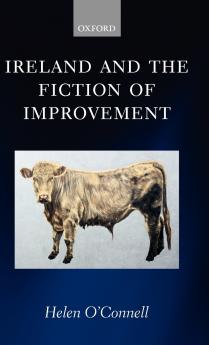English
Hardback
₹7104
(All inclusive*)
Delivery Options
Please enter pincode to check delivery time.
*COD & Shipping Charges may apply on certain items.
Review final details at checkout.
Looking to place a bulk order? SUBMIT DETAILS
About The Book
Description
Author
This is the first study of Irish improvement fiction a neglected genre of nineteenth-century literary social and political history. It shows how the fiction of Mary Leadbeater Charles Bardin Martin Doyle and William Carleton attempted to lure the reader away from popular genres such as fantasy romance and radical political tracts by demonstrating the value of hard work frugality and sobriety in a rigorously realistic mode representing the contentment that inheres in a plain social order free of excess and embellishment. Improvement discourse defined itself in opposition to the perceived excesses of both revolutionary politics and romantic poetry seeking (but failing) to demonstrate how both political discontent and unhappiness could be offset by a strict practicality and prosaic realism. The improved societies depicted in these fictional pamphlets are the expression of a counter-revolutionary liberalism and correspond to representations of social stability in the emerging English realist novel. These issues are examined in chapters exploring the career of William Carleton; peasant orality; educational provision in the post-Union period; the Irish language; secret society violence; and the Irish revival. Helen O''Connell argues that improvement discourse is embedded in the literary mainstream of nineteenth-century Ireland from the oral peasant narratives of William Carleton to Young Ireland nationalism. In addition she shows how the cultural revival of the late nineteenth and early twentieth centuries emerged in reaction to the modernizing discourse of improvement. While uncovering previously neglected material this study sheds new light on the work of Maria Edgeworth Mary Leadbeater William Carleton Thomas Davis Charles Gavan Duffy Douglas Hyde J. M. Synge and W.B. Yeats.
Delivery Options
Please enter pincode to check delivery time.
*COD & Shipping Charges may apply on certain items.
Review final details at checkout.
Details
ISBN 13
9780199286461
Publication Date
-01-11-2006
Pages
-244
Weight
-368 grams
Dimensions
-140x216x17.46 mm








